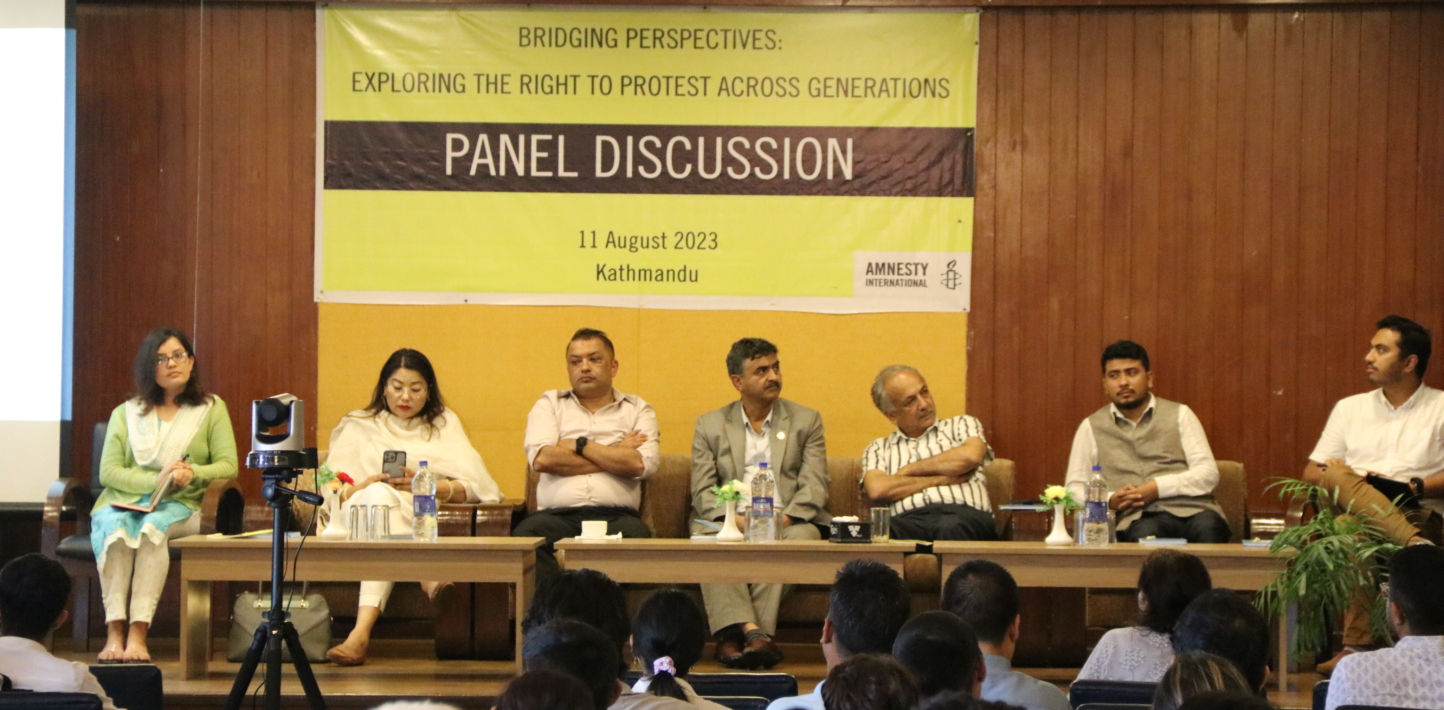On 11 August, on the eve of International Youth Day, Amnesty International Nepal organised a panel discussion programme entitled “Building Perspectives: Exploring the Right to Protest Across Generations”. The discussion programme aimed to discuss and dissect intergenerational perspectives on the the role of youths in bringing about changes in society including by exercising their right to protest.
Honourable Gagan Kumar Thapa, member of the House of Representatives; Ram Kumari Jhakri, political leader; Honourable Thakur Prasad Gaire, member of the House of Representatives; Praneta, campaigner with Brihad Nagarik Andolan; Yubaraj Ghimire, senior journalist; and Subin Mulmi, civil society and youth activist were the panellists who shared their experiences and perspectives in their exercise of the right to freedom of expression, opinion, association and assembly.
The right to exercise civic awareness and consciousness, whetherin the form of a protest or in the form of opinion and assembly, is
Nirajan Thapaliya, AI Nepal
guaranteed in the Constitution. And it is the duty of the
government to protect any nature of dissent.
“We are hosting this event on the eve of International Youth Day to speak about the changing nature of protests globally. In Nepal, the exercise to ‘dissent’ has not changed much and the environment generally is not that very conducive to doing so. The right to exercise civic awareness and consciousness, whether in the form of a protest or in the form of opinion and assembly, is guaranteed in the Constitution. And it is the duty of the government to protect any nature of dissent. In Nepal and abroad, we have seen that youth participation is highest in peaceful protests and they have always played a huge role. The youth must be critical and work as watchdogs to keep the government in check and speak truth to power, that is the essence of this program,” said Nirajan Thapaliya, director of Amnesty International Nepal, as he welcomed participants in the program.
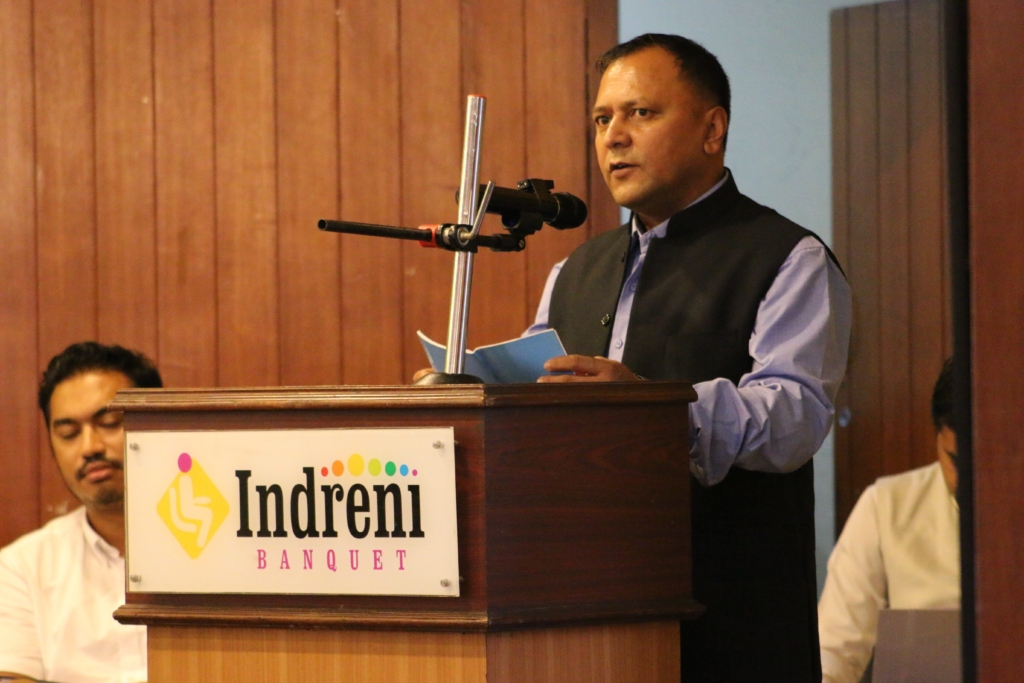
A short presentation was followed which was delivered by Amnesty International Nepal’s Campaigns Coordinator Ashmita Sapkota who also spoke about Amnesty’s ‘Protect the Protest’ campaign and the status of protests in the globe.
Amnesty International’s global flagship campaign “Protect the Protest” aims to protect and foster people’s right to protest in the context of shrinking civic space globally, owing to a range of reasons including the rise of populism, authoritarianism, technological onslaught on people’s right to privacy, increasing use of emergency powers, and criminalization of protestors, among others.
Then, all the distinguished guests took to the podium to share their journeys and learnings over the years. Starting off, Gagan Thapa spoke about his days as a student protester in the second People’s Movement that came to fruition in 2006 that eventually brought about federalism in the country. Then he moved on to speak about what a democracy really means and how young people should view a democracy and question it when it doesn’t align with its fundamental principles.
“Today, Nepal as a democratic nation provides safe, non-violent spaces for protests, especially when you compare the situation to when we were protesting in the years preceding the promulgation of the current Constitution. Today, we democratically vote for a new government every five years. But does only a periodic election mean our country is democratic? To gauge if a nation is truly democratic, there are three main criteria for the measurement: Does the state follow the rule of law? Does the state respect the federal separation of power guaranteed by the Constitution? Does it respect, protect and fulfil the citizens’ fundamental rights guaranteed in the Constitution?” he said. Honourable Thapa was Amnesty International’s Prisoner of Conscience in 2005 when he was detained for his political expression and dissent.
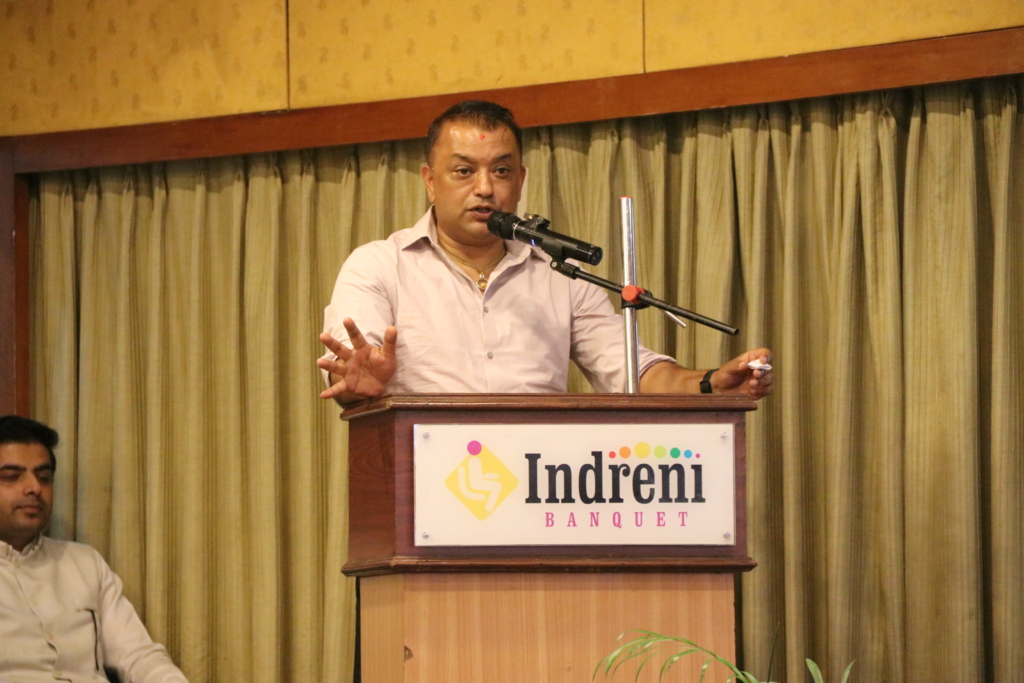
Senior journalist Yubaraj Ghimire, who was also a prisoner of conscience of Amnesty International in 2001 while he was detained with a charge of sedition merely for exercising his editorial freedom of giving space to an opinion piece by former Dr Baburam Bhattarai, then leader of the insurgent political party Communist Party of Nepal (Maoist). Ghimire presented a dejected view of the government and the future of democracy in the country.
“A democracy is the only political system in the world that regards human rights, where the right to oppose, expose and dispose and protest are respected. But I am increasingly losing faith in our democracy. When I was arrested in 2001, I had faith in the justice system but if I were to be arrested today, I would not have the same faith. If those in power are protected with impunity, then we can’t call it a democracy and we must keep protesting. In 2006, we were optimistic, but we have been failed by our political leaders,” he said.
Praneta, an activist and writer, added to what the journalist Ghimire said. “We live in a democracy, and we have the right to protest which is guaranteed by the Constitution. A nation that quells dissent is a sign of a weak government,” she said, adding on how the nature of protests have shifted with the world.
“Today, we plan and assemble on social media platforms. Now, protests have moved from the streets to our phones. And while I agree that in this democracy, organising protests has become safer, there are other issues that have come to the fore: historical injustices – suffered by marginalised communities like Dalits, indigenous communities, women, Madhesis – that have been silenced are finally getting a voice now,” she said.
I agree that in this democracy, organising protests has become safer, there are other issues that have come to the fore: historical injustices – suffered by marginalised communities like Dalits, indigenous communities, women, Madhesis – that have been silenced are finally getting a voice now
Praneta, campaigner
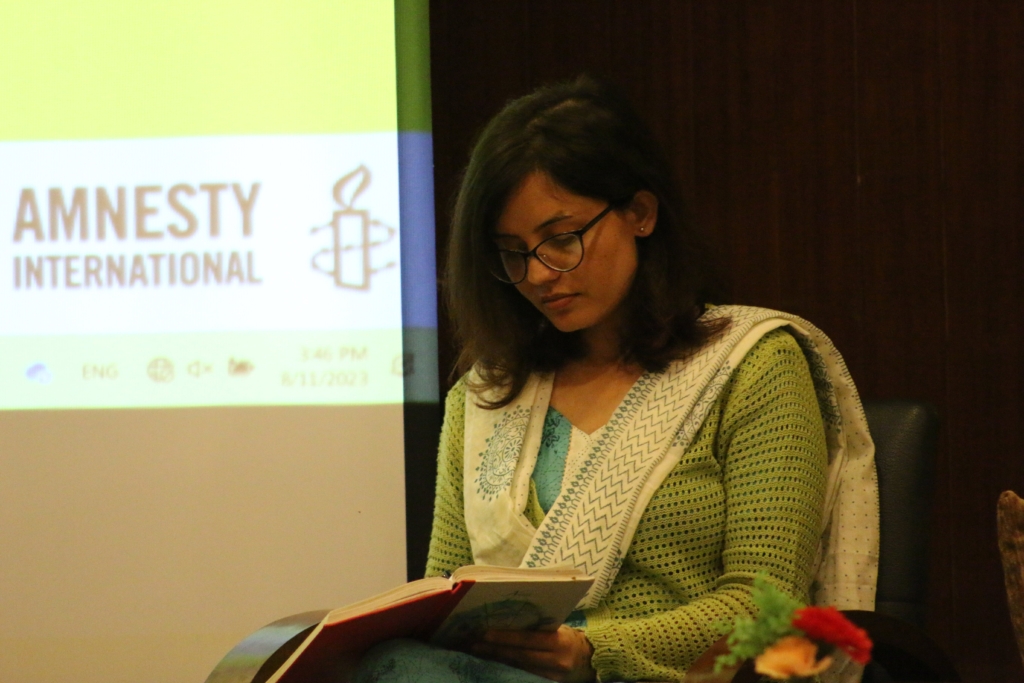
Adding to Praneta’s views on the evolution of protests and the rise of social media in mass messaging, Subin Mulmi expressed caution to youth protestors. “Social media has indeed become a new tool for any form of dissent; however, I think we have to be careful about the content we consume and advocate on social media. And we also must be careful not to have this ‘saviour complex’ mentality when we protest. No matter what we’re protesting about, the leadership of any protest campaign should always come from someone who is a part of the community that is seeking justice,” he said.
Political leader Ram Kumari Jhakri spoke about respecting the Constitution while exercising one’s right to protest, saying, “While protesting, it is important that we do not forget our duties as responsible citizens.”
Adding to that, Honourable Thakur Prasad Gaire, Member of House of Representative, said, “The right to protest is every person’s duty and responsibility. But to right wrongs, protests must be clearly directed. Protesting doesn’t mean just raising your voice and throwing insults and insinuations and creating frustration and unrest. It is the responsibility of every citizen to build a nation for the better. The attitude people have of always putting the blame on people instead of taking accountability and responsibility must change.”
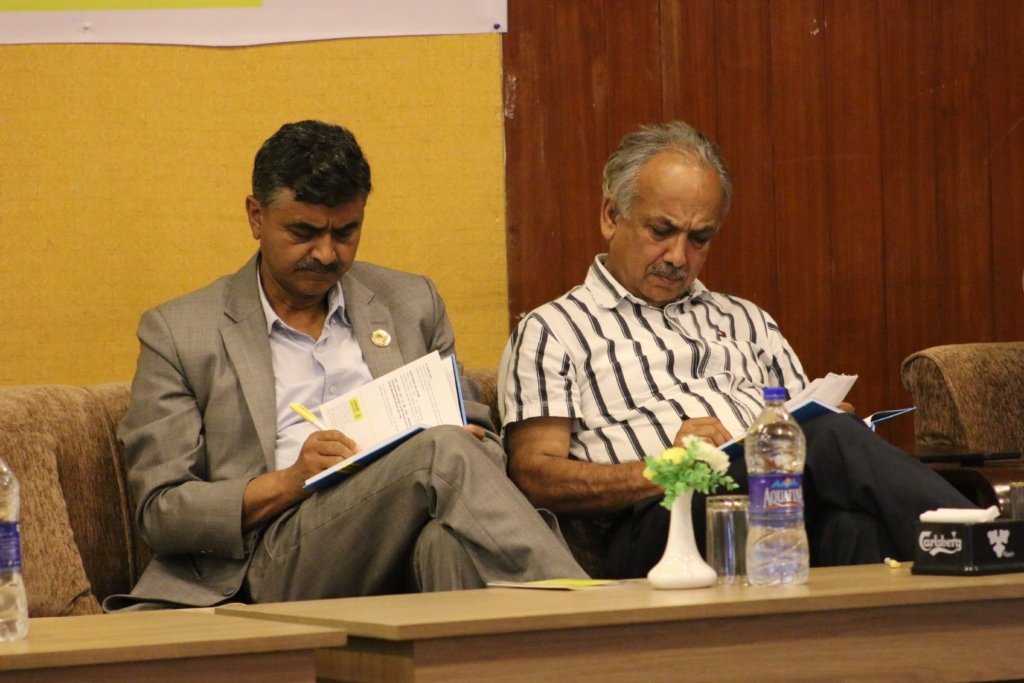
The program ended with a quick note by AI Nepal Chairperson Bipin Budhathoki who stressed on the need of the youth’s voice in addressing historical injustices and new ones, like the climate crisis. The event was hosted by AI Nepal Human Rights Education Officer Kundan Raj Sharma.


